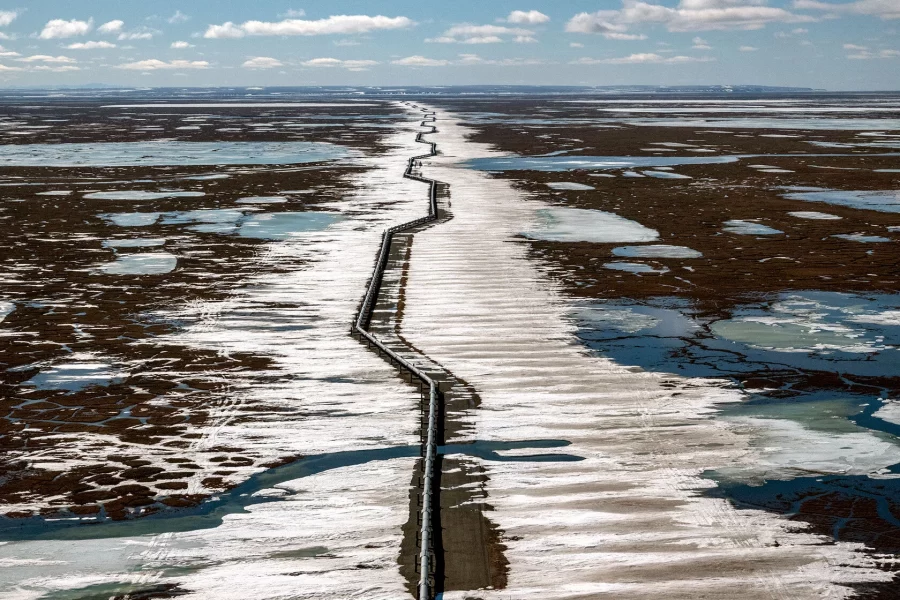The Controversial Willow Project: An Overview
March 16, 2023
In recent weeks, a new environmental controversy has risen from the oil economy. The controversial “Willow Project” entails harvesting oil from a massive oil field in Alaska and transporting it along the trans-Alaska pipeline. The field has been aptly deemed “the biggest oil field in decades” due to its promise of producing up to 180,000 barrels of oil per day, with the five different drilling sites aiming to churn out around 1.5% of the United States’ total oil production. But why is it controversial?
Essentially, the Willow Project is projected to produce the equivalent of 278 million tonnes of greenhouse gases over its lifetime of about 30 years. For comparison, around 2 million passenger, gas-powered vehicles produce that amount of greenhouse gases in the same time span.
In Alaska, there is heavy political support from Republican Gov. Mike Dunleavy, state lawmakers, and the majority of the population in the North Slope region. Those in support of Willow argue that it would allow benefits such as improved infrastructure and public services thanks to the taxes generated by the project. Additionally, Democratic Rep. Mary Peltola hoped to get across to Biden the message that not only would the project create well-paying union jobs, but also, the consensus in the region is positive and many members of the Alaskan population believe the project to be beneficial to their economy and communities.
However, there is also heavy opposition from the national community as well as the local community here at Bishop O’Dowd. To start, the mayor of the community of Nuiqsut, which is the closest city to the proposed development, is against the project due to possible negative impacts on wildlife, especially caribou, and also negative impacts on her people’s lifestyles. In terms of political opposition, many environmentalists assert that an approval of the project by Biden would be a betrayal on his part, as he promised during the 2020 campaign to end new oil and gas drilling on federal land. Additionally, Biden has displayed fighting climate change and converting the United States to renewable energy as a top priority within the administration, and approving an oil-drilling project would contradict his obligation towards the planet. At O’Dowd, there are also a variety of opinions. Leo Schwenk, ’23, maintained that, “The project would destroy the arctic”, adding, “We need to divert our resources towards clean, renewable energy that is sustainable for the planet and future generations. Fossil fuels are a finite resource, and our dependence on them is dangerous if we continue down this path.”
Colin Sweeney, ’23, had a different opinion, however: “I honestly think that this project is beneficial because oil is a precious resource and we must use it as fast as possible, for energy and transportation,” Colin said, later adding that “drilling all of this oil out of the ground would be amazing for the economy.”
Clearly, there are vastly different perspectives on the Willow Project. Some argue that it would boost the economy and provide jobs for locals in Alaska, while others believe that it contributes to a larger issue of pollution and climate change.


